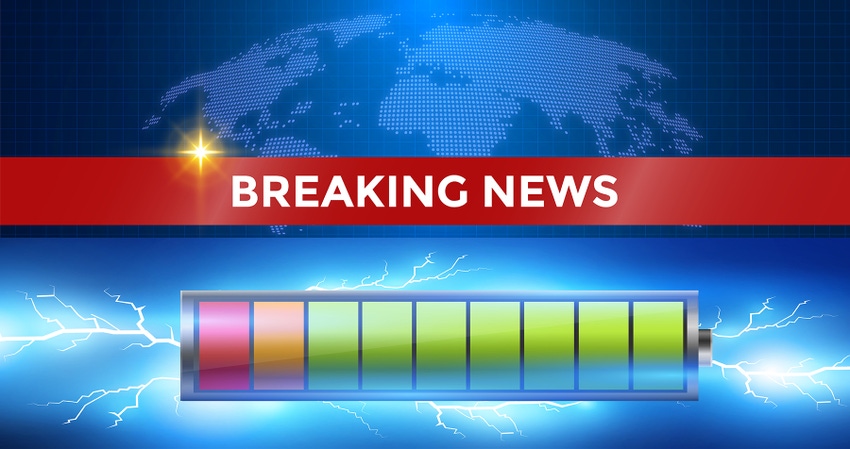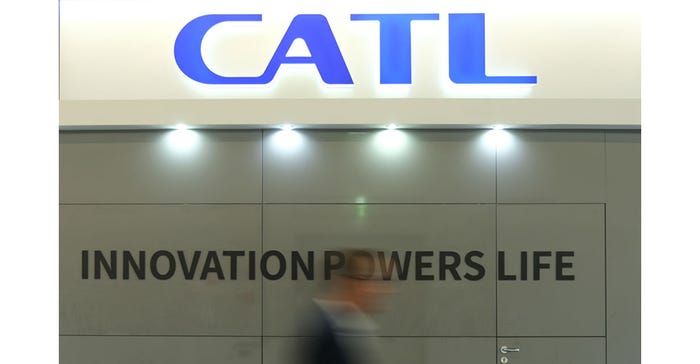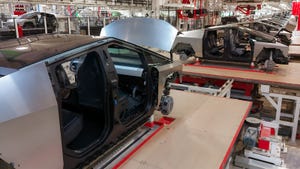Battery Breaking-News Headlines
CATL's new LFP battery; unnerving global battery production stats; Honda and VW in Canada; California's megawatt milestone; and more are in the news this week.

The battery industry moves at a fast pace: The articles Battery Technology publishes represent only a fraction of what’s happening in this quickly evolving industry. That’s the idea behind this new curated and regularly updated digest of links to breaking news related to the battery and energy storage industry. Some of these stories may become the subject of analysis by our own team—but we’re sharing them here, unfiltered, so that you can get them on your radar right away.
To keep the stream fresh, we will update this digest regularly—so please check back often!

CREDIT: SEAN GALLUP / GETTY IMAGES NEWS VIA GETTY IMAGES
China EV battery giant CATL has just revealed a new lithium iron phosphate (LFP) battery: The Shenxing Plus EV battery has a driving range of more than 1,000 kilometers (621 miles) on a single charge. (Reuters)
Good news: Global battery production doubled in 2023. Bad news: It will need to be six times faster to reach global renewable energy targets. Battery makers need to pick up the pace. So warns The International Energy Agency (IEA) this week. (The Guardian)
Bloomberg has a report out that argues that battery recycling advances, such as those implemented by Redwood Materials, “shatters the myth of EV waste.” (Economic Times)

Engineer with Canadian flag - stock imageCREDIT: SVIATLANA BARCHAN / ISTOCK VIA GETTY IMAGES
Canada is making battery-industry news twice this week: Volkswagen will produce solid-state batteries at the gigafactory it plans to build in Ontario, Canada, according to Volkswagen Group Canada CEO Vito Paladino. The St. Thomas gigafactory was announced in 2023. (Financial Post)
While just up the road, Honda is set to build a battery plant near its auto plant in Alliston, Ontario, sources at Honda Canada tell The Canadian Press; the official announcement comes next week. (CP24)
And twice in a week, the biggest source of power in the state of California wasn’t oil, wind, or solar but batteries—both times outputting more than 6000 megawatts of energy. (Business Insider)
Earlier:
Lithium-ion battery fires are in the news again, as Massachusetts firefighters, using a new state-supplied tool, identify 50 fires in the past six months as being caused by li-ion batteries. “I’m personally to a point where almost every fire I go to now I’m assuming I’ll be dealing with lithium-ion batteries,” one firefighter tells the Boston Herald. (Boston Herald)

Fires caused by lithium-ion batteries are notoriously difficult to extinguish.CREDIT: TED HOROWITZ PHOTOGRAPHY / THE IMAGE BANK VIA GETTY IMAGES
Last year, politicians citing national security concerns pressured a local power company to disconnect utility-scale CATL batteries that had been installed at US Marine Corps Camp Lejeune in North Carolina. Now, the Navy says it will ensure no utility-scale Chinese batteries will be used in government operations for navy and marine services. (Military.com via Jacksonville Daily News)
In three separate real-world tests, Nio’s ET7 EV, powered by semi-solid-state batteries, traveled more than 650 miles on a single charge. Its new 150 kWh battery pack is the same size as a traditional 100 kWh pack. (Carscoops)
Volvo Car Group has signed a preliminary agreement with CATL for battery recycling. The plan in short: Volvo recycles retired batteries from its vehicles; suppliers dismantle and extract the metal materials; and CATL uses the recycled materials in making new batteries for Volvo cars. (CnEVPost)
And Ford is recalling 456,565 Bronco Sport SUVs and Maverick pickup trucks because the vehicles may not detect a low battery charge. These are ICE-powered vehicles and 12-volt batteries—not EVs and Li-ion cells. (CBS)
About the Author(s)
You May Also Like







